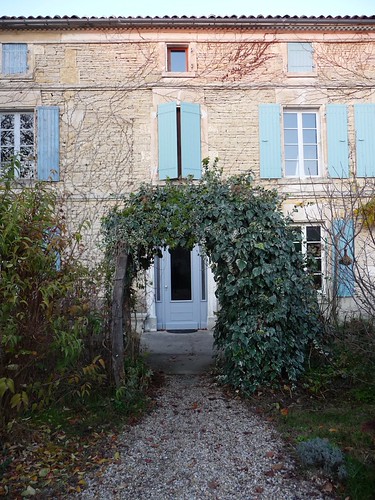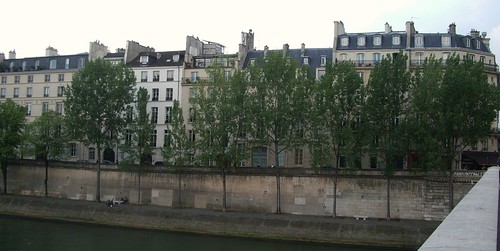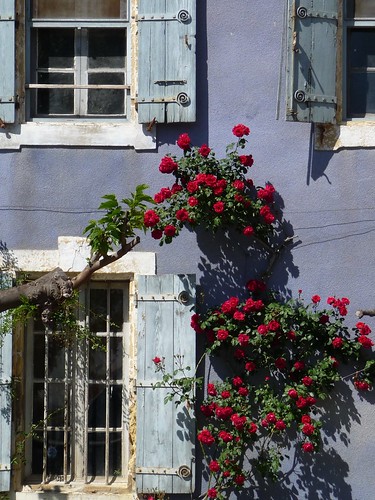
In Part Four of the Tutorial I would like to introduce you to the
Residency Card, the
Carte de Séjour.
The
Carte de Séjour rules have changed since we arrived in France seven years ago. If you're staying in France less than one year,
i.e., the length of a Long Stay Visa, as long as that visa is valid, you're fine. Once the clock strikes midnight on the 365th day however, you will need a Carte de Séjour in hand.
If you have one of the following visas and want to reside in France for only 12 months, then you will
not need to apply for a Carte de Séjour. Lucky you!
- long stay non-working visa (visiteur)
- long stay visa to work in France (assistants, lecturers, full time and temporary workers)
- long stay visa to study in France (students, au pairs, interns)
- long stay visa for spouses of French nationals
However, that doesn't mean that you are exempt from a little meet and greet with a French
fonctionnaire. You are still required to register with the Immigration Office.
Upon your arrival in France you will need to send a registered letter with return receipt (
une lettre recommandé avec demande d'avis de réception) to your local offices of the
OFII: the Office Français de l'Immigration et de l'Intégration.
The letter will need to include the following:
- the application form, stamped by the French Consulate when they granted your visa
- your visa number
- your date of entry in France or the Schengen country
- your address in France
- copies of the ID pages in your passport and the immigration stamp received when you landed
You will then be requested to appear for an interview and medical exam with the following:
- your passport
- proof of accommodation in France
- one ID picture
- payment for the processing fees - 55€ for students, 70€ for workers, 300€ for visitors
When your
dossier is complete, a registration stamp will be added to your passport.
If your plans change and you need to stay longer than one year, you need to apply with your local Préfecture, Sous-Préfecture or Préfecture de Police (if residing in Paris)
at least two months before your visa expires.

If your plan is to stay for more than a year, then you will need a Carte de Séjour. You should apply
in person within two months of your arrival in France at the
Service des Étrangers section of your local Préfecture, Sous-Préfecture, or the Préfecture de Police (if residing in Paris).
You will need the following, in their original form, plus two photocopies of each, just to be safe. Also, any certificates (such as marriage and birth) not in French will need to be translated by an
official, court-certified translator (names of translators are available from Préfectures, Consulates and police stations). When we had ours translated it was 40€ a page, so make sure that your bank balance is healthy!
- a valid passport
- a valid long stay visa (which is in your passport)
- birth certificate with parents names listed (sometimes it must be issued within the previous 3 months)
- marriage certificate
- birth certificates of dependent children if applicable
- proof of permanent address in France (EDF bill or the house deed of sale (acte de vente) for a house bought in France or a signed lease agreement for the French address)
- recent medical certificate issued by the OFII- they will send you a notice of where and when your medical exam is to take place and the certificate will be added to your dossier
- three recent ID photographs
A few additional items to have ready:
- details of your parents places of birth and your mother's maiden name
- two stamped, self-addressed envelopes are sometimes, but not always, asked for
There will be extra requirements for different types of Cartes de Séjour and your local government office will give you a list of any additional documents you must provide. Just don't be surprised if, when you arrive with everything they have asked for, all bundled in a nice little folder, they demand yet another random piece of paper.
C'est normal.There are several different types of Carte de Séjour -
assistant/lecteur-visiteur, étudiant, travailleur temporaire, vie privée et familiale, visiteur, salarié, compétences et talents - and the fee for the application depends on what type you are applying for.
Once an application has been made, you will be given a temporary, renewable receipt, a
récépissé. This is valid for three months and allows you to stay in France while your application is being processed.
We were never issued a récépissé for some reason. We applied for our Cartes and waited. And waited. They finally arrived several months later and every year we went through the frustrating
process all over again.
One of the important things to remember is that, even though there is a basic list of documents that France requires, each Mairie, Préfecture, etc., seems to have its own rules and way of doing things.
So you learn to be flexible, to cajole the powers-that-be with some homemade brownies, to enjoy another glass of wine and another morsel of French cheese. While you learn the art of
patience. Infinite patience.

Stay tuned for Part Five of the Tutorial in a couple of weeks. We've got guests arriving and I'm off to Paris for six days, so the Tutorial is going to have to wait!
If you live in France and have a Carte de Séjour story to share, bad or good (do good CdS stories even exist?) please feel free to share them in the comments.
*Please note that the information given here, while believed to be as accurate as possible at the time of writing, is general information only, and no liability can be accepted. Before acting on the information, please ensure that you take expert advice from the relevant authorities.
Pin It





